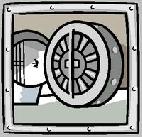
 |
|
| Financial Terms | |
| Customs union |
|
Information about financial, finance, business, accounting, payroll, inventory, investment, money, inventory control, stock trading, financial advisor, tax advisor, credit.
Main Page: business, inventory, financial advisor, finance, investment, credit, payroll, money, |
Definition of Customs union
Customs unionAn agreement by two or more countries to erect a common external tariff and to abolish
Related Terms:Economic unionAn agreement between two or more countries that allows the free movement of capital, European Union (EU)An economic association of European countries founded by the Treaty of Rome in European Union (EU)an economic alliance originally created Credit UnionCredit unions are community based financial co-operatives and most offer a full range of services. All are owned and controlled by members who are also shareholders. Credit unions are regulated provincially and insured by a stabilization fund, deposit insurance or guarantee corporation. economic components modelAbrams’ model for calculating DLOM based on the interaction of discounts from four economic components. ArbitrageursPeople who search for and exploit arbitrage opportunities. Convertible eurobondA eurobond that can be converted into another asset, often through exercise of  Delta neutralThe value of the portfolio is not affected by changes in the value of the asset on which the Economic assumptionseconomic environment in which the firm expects to reside over the life of the Economic defeasanceSee: in-substance defeasance. Economic dependenceExists when the costs and/or revenues of one project depend on those of another. Economic earningsThe real flow of cash that a firm could pay out forever in the absence of any change in Economic exposureThe extent to which the value of the firm will change because of an exchange rate change. Economic incomeCash flow plus change in present value. Economic order quantity (EOQ)The order quantity that minimizes total inventory costs. Economic rentsProfits in excess of the competitive level.  Economic riskIn project financing, the risk that the project's output will not be salable at a price that will Economic surplusFor any entity, the difference between the market value of all its assets and the market Euro CDsCDs issued by a U.S. bank branch or foreign bank located outside the U.S. Almost all euro CDs Euro linesLines of credit granted by banks (foreign or foreign branches of U.S. banks) for eurocurrencies. Euro straightA fixed-rate coupon eurobond. EurobankA bank that regularly accepts foreign currency denominated deposits and makes foreign currency loans. EurobondA bond that is (1) underwritten by an international syndicate, (2) offered at issuance EuroclearOne of two principal clearing systems in the eurobond market. It began operations in 1968, is EurocreditsIntermediate-term loans of eurocurrencies made by banking syndicates to corporate and Eurocurrency depositA short-term fixed rate time deposit denominated in a currency other than the local Eurocurrency marketThe money market for borrowing and lending currencies that are held in the form of  EurodollarThis is an American dollar that has been deposited in a european bank or an U.S. bank branch Eurodollar bondseurobonds denominated in U.S.dollars. Euroequity issuesSecurities sold in the euromarket. That is, securities initially sold to investors European Currency Unit (ECU)An index of foreign exchange consisting of about 10 european currencies, European Monetary System (EMS)An exchange arrangement formed in 1979 that involves the currencies European optionOption that may be exercised only at the expiration date. Related: american option. European-style optionAn option contract that can only be exercised on the expiration date. Euroyen bondseurobonds denominated in Japanese yen. Euro-commercial paperShort-term notes with maturities up to 360 days that are issued by companies in Euro-medium term note (Euro-MTN)A non-underwritten euronote issued directly to the market. euro- Euro-noteShort- to medium-term debt instrument sold in the eurocurrency market. Force majeure riskThe risk that there will be an interruption of operations for a prolonged period after a Leading economic indicatorseconomic series that tend to rise or fall in advance of the rest of the economy. Neutral periodIn the euromarket, a period over which eurodollars are sold is said to be neutral if it does not OPEC (Organization of Petroleum Exporting Countries)A cartel of oil-producing countries. Risk neutralInsensitive to risk. Economic Value Added (EVA)Operating profit, adjusted to remove distortions caused by certain accounting rules, less a charge EurobondA debt security issued in a market other than the home market of economic integrationthe creation of multi-country markets economic order quantity (EOQ)an estimate of the number economic production run (EPR)an estimate of the number economically reworkedwhen the incremental revenue from the sale of reworked defective units is greater than economic value added (EVA)a measure of the extent to which income exceeds the dollar cost of capital; calculated equivalent units of production (EUP)an approximation of the number of whole units of output that could have been pseudo microprofit centera center for which a surrogate European optionAn option that can be exercised only on its expiration date. Economic lifeThe period over which a company expects to be able to use an asset. economic order quantityOrder size that minimizes total inventory costs. economic value added (EVA)Term used by the consulting firm Stern Stewart for profit remaining after deduction of the cost eurobondBond that is marketed internationally. eurodollarsDollars held on deposit in a bank outside the United States. Classical MacroeconomicsThe school of macroeconomic thought prior to the rise of Keynesianism. EconomicsThe study of the allocation and distribution of scare resources among competing wants. EurodollarsDeposits denominated in U.S. dollars but held in banks located outside the United States, such as in Canada or France. MacroeconomicsThe study of the determination of economic aggregates such as total output and the price level. MicroeconomicsThe study of firm and individual decisions insofar as they affect the allocation and distribution of goods and services. Neutrality of MoneyThe doctrine that the money supply affects only the price level, with no long-run impact on real variables. Supply-Side EconomicsView that incentives to work, save, and invest play an important role in determining economic activity by affecting the supply side of the economy. Related to : financial, finance, business, accounting, payroll, inventory, investment, money, inventory control, stock trading, financial advisor, tax advisor, credit. |